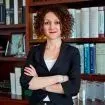The High Court of Appeals, Assembly of Civil Chambers has recently ruled on the issue of whether appointment of an expert for assessment of likelihood of confusion in trademarks is admissible under Turkish Procedural Law (E. 2014/11-696, K. 2016/778, 8.6.2016).
The dispute was regarding the annulment of a Turkish Patent Institute's decision. The plaintiff requested de-registration of the "coco¬ball" trademark on the grounds that there is a likelihood of confusion with its registered trademark "cocobar" in terms of Article 7, 8 and 9 of Decree on Protection of Trademarks No. 556 ("Decree Law"). The local court rejected the plaintiff's claim upon an expert report, saying that there is no likelihood of confusion. Following the plaintiff's appeal, the High Court of Appeals reversed the local court's decision. After the reversal decision, the local court proceeded with the case in line with the reversal reasons, but rejected the case once again despite the "second" expert report - obtained in the post-reversal proceedings - saying the opposite of the first expert report, that there is indeed a likelihood of confusion between the trademarks in question. The plaintiff appealed the decision for the second time and the High Court of Appeals reversed the local court's decision again, on the ground that the court should have obtained a "third" expert report to settle the conflict between the first and second reports. This time the local court did not comply with the High Court of Appeals' decision and insisted on its decision. Upon this, the case was brought before the Assembly of Civil Chambers.
The Assembly of Civil Chambers first established that assessment of similarity of trademarks and likelihood of confusion in terms of Article 8 (1-b) is a matter of law.
Then the question rises whether this assessment, which is in its essence a law matter, has any aspect that is not related to law itself and may actually require specific or technical knowledge of an expert. The Assembly of Civil Chambers dwelled on this point since the procedure dictates that law-related issues, without exception, must be settled by the judge, not by experts appointed by the judge, and this rule is actually the very foundation of the legal system, based on Article 138 of the Constitution. So the Assembly of Civil Chambers concluded that legal issues cannot be left to court-appointed expert's knowledge and discretion, as this would ultimately mean assignment of judges' power to third parties, i.e. experts, which cannot be adopted by law in any way.
Based on this reasoning, the Assembly of Civil Chambers ruled that the issue of likelihood of confusion in terms of Article 8 (1-b) of Decree Law is a matter of law, therefore cannot be left to assessment of an expert. This ruling of the Assembly of Civil Chambers could fundamentally change how the courts proceed with cases where likelihood of confusion, or similar issues, will be examined, since the usual practice of the courts is to resort to experts for such an assessment. Now that there is this ruling, the courts could change the way they handle cases and may not involve experts when it comes to matters that are directly related to law.
This article was first published in Legal Insights Quarterly by ELIG, Attorneys-at-Law in December 2016. A link to the full Legal Insight Quarterly may be found here.
The content of this article is intended to provide a general guide to the subject matter. Specialist advice should be sought about your specific circumstances.



